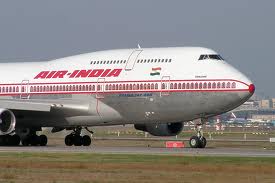
Thiruvananthapuram, October 23: The Air India pilot, who pressed the flight hijack alarm in panic at the airport here last week amid protests by passengers, has told police she was threatened with dire consequences by some of them after they barged into the cockpit.
Commander Rupali Wagmore in her FIR said a passenger even told her he would not hesitate to kill her if anything happened to his six month old child.
Around 200 passengers of AI Kochi bound flight from Abu Dhabi had on October 19 protested and some allegedly tried entering the cockpit after it was diverted to the state capital due to poor visibility. Having boarded the previous night, they alleged it took several hours even to take off from Abu Dhabi.
Passengers also alleged that even women and children were not provided water or refreshments and they started protesting only after there was no word from the crew on when the flight would leave for Kochi.
State police has set up a special team under Assistant Commissioner K S Vimal to ascertain the circumstances that led to the incident and find out if the pilot's charges against the passengers are true.
Based on Wagmore's complaint, police had registered a case against six 'identifiable' passengers and begun investigation by questioning airport staff who were witness to the drama that unfolded at the airport.
Vimal told PTI today that police plans to take statements from the pilot and passengers against whom the case was registered. "We have not been able to meet the pilot. We are trying to meet her to take her statement", he said.
The team would go to Kochi soon since the passengers involved in the incident mostly hailed from that area.
DGCA is also probing the incident and its report is expected to be submitted to the Civil Aviation Ministry in a few days.
Meanwhile, setting aside differences, both the ruling and opposition parties faulted Air India for the incident and took strong exception to dubbing harried passengers as "hijackers."
Chief Minister Oommen Chandy said yesterday that the hijack alarm incident was just another instance of "cruelty" meted out to passengers from Kerala by Air India.
Though Kerala had repeatedly taken up woes of passengers in the Kerala-Gulf sector time and again there was no positive response from the airline to remedy the situation, he said.
Chandy said it was one of the basic reasons that prompted government to float an airline of its own called Air Kerala, mainly to serve Non Resident Keralites working in Gulf states.
Opposition leader V S Achuthanandan has taken strong exception to taking up a case against the passengers.
When contacted, Wagmore declined to react to the charge from political quarters that Air India was responsible for the "unfortunate incident" at the airport.
"Whatever to be said from my side I have stated in my complaint. I have also told the airline on what all had happened. I don't want to make any further comment on the issue", Wagmore said.





Comments
Add new comment